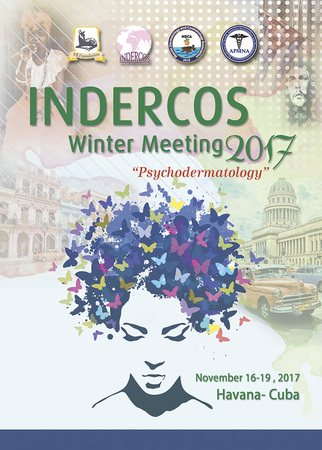Our work is entirely funded by private donations – we receive no money from government. Your money will help us continue funding research into vitiligo and supporting people affected by the condition.
Event
XXIII Master Class in Cuba
Hotel Nacional de Cuba, Habana, Cuba
will be held as a part of INDERCOS Winter Meeting, in collaboration with Cuban Vitiligo Support and Research Group. International and national expert speakers will discuss the latest basic research, advances, evidence and guidelines on diagnosis, investigation and management of vitiligo and other pigment cell disorders.
Participants will review risk factors in vitiligo, treatment approach to patients of pediatric and adult age, a variety of therapeutic options for vitiligo, including 'traditional medicines.' We will also discuss a common action at the United Nations aimed at improving quality of life of people with dermatological disabilities, and the World Vitiligo Day campaign.
Date: November 16-18, 2017
Location: Hotel Nacional de Cuba, Habana, Cuba

FAQOther Questions
- Is there a traditional medicine to treat vitiligo?
Traditional remedies can be helpful for managing stress or general metabolic health, but when it comes to vitiligo, the evidence is limited. While some natural supplements provi...
- Is there a special diet for vitiligo?
Recent research highlights the potential of diet and nutrition in managing vitiligo, offering an alternative where traditional therapies may be lacking. However, the relationshi...
- Pyrostegia venusta as a folk medicine for vitiligo?
Pyrostegia venusta, also known as “flame vine” or “cipó-de-são-joão,” is a neotropical evergreen vine native to Brazil. It thrives in fields, coastal areas, forest edges, and ro...
Though it is not always easy to treat vitiligo, there is much to be gained by clearly understanding the diagnosis, the future implications, treatment options and their outcomes.
Many people deal with vitiligo while remaining in the public eye, maintaining a positive outlook, and having a successful career.
Copyright (C) Bodolóczki JúliaBy taking a little time to fill in the anonymous questionnaire, you can help researchers better understand and fight vitiligo.